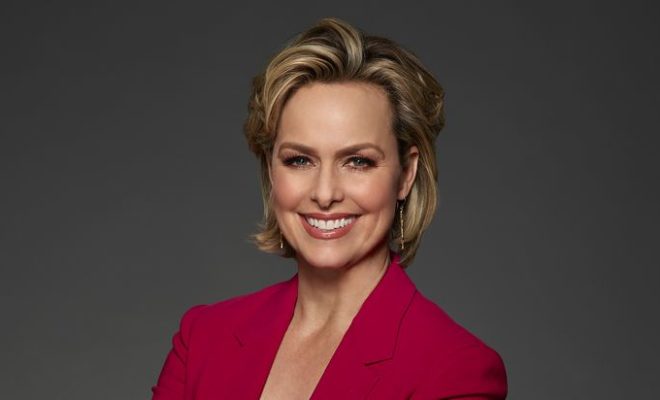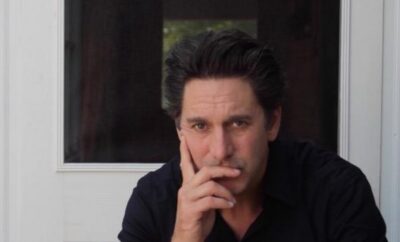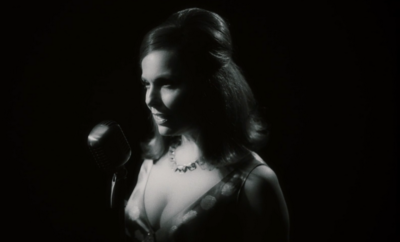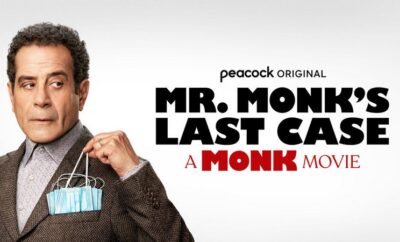 Freeform/Ed Herrera
Freeform/Ed Herrera
Features
Giving It Up For Jacqueline Carlyle
By: Atiya Irvin-Mitchell
I’m always on the lookout for dynamic and complex female character on the page and the screen, which is why I couldn’t wait to tune into Freeform’s “The Bold Type.” Despite the fact the I adore the golden trio that brings us into the world one and half seasons in, I’ve gotta say the unsung hero of the series might just be Jaqueline Carlyle.
I’ve always had a special place in my heart for writer characters (except for Carrie Bradshaw from “Sex and the City;” she’s a nightmare). From my days fangirling over Lois Lane to Rory Gilmore (we’ll talk about the revival another day), I love following the journeys of people who live and breathe words the way that I do, which was what sold me on the show.
For the unfamiliar, “The Bold Type” premiered in 2017 and follows Jane Sloan (Katie Stevens) a newbie journalist, Kat Edison (Aisha Dee) the Social Media Director and Sutton Brady (Meghann Fahy) an aspiring stylist. The show’s themes explore friendship, feminism, religion, identity, privilege, work, and confirms what a lot of millennials already know: growing up doesn’t stop after you turn eighteen. Going in I expected to connect the most with Jane, one journalist starting out to another. Although I liked Jane and related to her many moments of self-doubt, what stood out to me the most was Jacqueline Carlyle.
Jacqueline, who’s brought to life by the talented Melora Hardin, is the Editor-in-Chief of Scarlet, the fictional fashion magazine the protagonists work at and she’s a breath of fresh air. From Miranda Priestly (Meryl Streep) in The Devil Wears Prada to Cat Grant (Calista Flockhart) on “Supergirl,” women in positions of power follow a pretty predictable formula. They’re castrating, usually vindictive, loveless, friendless and most importantly take a special kind of glee in tormenting the people who work under them all while making them fetch their dry cleaning.
If you’ve never seen the film The Devil Wears Prada, Meryl Streep’s character Miranda set the standard for mean bosses by forcing her aspiring journalist assistant Andy (Anne Hathaway) to go above and beyond all while mocking her clothes. An ongoing joke on “Supergirl” in the show’s first season was that Cat Grant, for all her accomplishments, couldn’t be bothered to say the girl of steel’s name correctly. Now, as seasons go on, we learn Cat Grant has depth and actually cares a great deal about Kara (Melissa Benoist), but she’s the exception and not the rule. Those who have the misfortune of working under women like Cat and Miranda do it begrudgingly and the viewers are given the message that the protagonist should aspire to be like them at their own risk. On many shows like “The Bold Type,” someone like Jacqueline would be an obstacle for a young woman trying to launch a career to overcome, but series’ writers made her a resource.
Jacqueline is successful, well respected and a kind and supportive boss, which isn’t to say she’s ineffective. She expects nothing less than the best from the people who work under her, but she gets the best from her employees by making her expectations clear, encouraging them and providing constructive feedback. This is a nice change of pace from the cringe-worthy public shaming scenes that are far too common when it comes to successful women on screen.
Jacqueline is anything but cruel and or demeaning yet she has no issue with exerting her authority and telling her employees harsh truths. She has no problem with telling Kat it’s time to fire an intern whose work has reflected poorly on the magazine. Early in Season Two, after Jane asks for her old job back upon embarrassingly being fired from the position she left Scarlet for, Jacqueline kindly but firmly tells Jane she needs to deal with the failure and grow up. Jane, Sutton and Kat don’t threaten her. Quite the opposite. In fact, Jacqueline clearly remembers what it’s like to be young and wants to share the benefit of experiences. And, as it turns out, the ladies’ fearless leader isn’t entirely fictional.
Jacqueline Carlyle is based loosely on Cosmopolitan Magazine’s Editor-In-Chief Joanna Coles. When the show was still being conceived, “The Bold Type’s” showrunner Sarah Watson shadowed Coles and interviewed her employees. As a result, the show at times mirrors parts of Coles’ career and management style. Importantly, it also mirrors some of Watson’s working experiences as told the New York Times saying, “We always see on TV the women who are tough and not rooting for other women to succeed, and that’s not like the kind of mentor I’ve had in my life. I’ve had incredible female bosses, and I wanted to show someone who wants to bring up the next generation of strong women writers.”
When we meet her in the pilot, Jacqueline tells a newly promoted Jane not to focus on pitching something she’s interested and not just saying what she thinks will please her boss. We see her telling Kat that as a Social Media Director it’s important to know when to speak out and when to pick your battles. We see her telling Sutton not to let the slut-shaming comments she’s received to stop her from doing and enjoying her work. At one point, she even bails one of the leading ladies out of jail, but pro-tip: it’s highly unlikely any employer would go that above and beyond so if you find yourself in a legal bind I wouldn’t recommend using your boss as your one phone call.
Beyond deviating from the norm by having Jacqueline actually treat her employees like people, she’s neither one-dimensional or a caricature. Jacqueline is married to someone she genuinely seems to like (played by Hardin’s real-life husband) and has two young children. We don’t see much of Jacqueline’s family, but from what have seen of her home life it seems happy. On most shows meeting such character’s family would be a depressing segment where the audience learns that the career women’s family is in shambles all due to her workaholic nature. Typically, the price a woman like her has paid for their illustrious career would be any chance at a semi-functional personal life, but thankfully that’s not the case for Jacqueline. Please writers room don’t make it a future issue for her!
Despite the fact that from the moment we meet her Jacqueline has distinct air of being very together, the writers room didn’t shy away from giving her an air of vulnerability. We learn in Season One (amongst many things) she’s a rape survivor. Early in her career Jacqueline was raped by her Editor. In the #MeToo era, the conversation Jane and Jacqueline have about why she never pressed charges reminds us of an ugly reality for rape survivors both then and now: the stigma. Even though she did nothing wrong, Jacqueline never considered pressing charges because knew it could end or derail her career. Unfortunately, because the world’s currently a dumpster fire, we know that she probably wasn’t wrong. In revealing her status as a rape survivor, the show manages to handle the subject well where many shows have failed. Jacqueline’s rape is something that changed her, as trauma does, but is not something that defined her. It’s not a very special episode of ”The Bold Type” meant to shock people. It’s not something that happens to punish her or lazily create character development. It’s one part her story and serves as a reminder survivor of sexual violence are everywhere.
Her character also exemplifies one of the show’s strengths: it never fails to highlight the positive relationships women can have with other women. Women are certainly imperfect, but it’s refreshing to have a show that gives women interactions that aren’t tied up in love-triangles and pettiness. The truest romance on the show is between Sutton, Kat and Jane and with Jacqueline we’re shown a wonderful example of an intergenerational mentorship. We like her and fully understand why Jane wants to be her when she grows up.
A professor once told my class that in our society we’re all too willing to believe the worst of women. On television, unfortunately, that adage has held true. There are writers, thankfully, working to change this but more often than not writers rooms behave as if success for women comes at the cost of humanity. Ambition is not something that drove them, but something that consumed them. It won them money and power, but in the end, they lead empty lives free of love, friendship or any fulfillment outside of their professional achievements.
Not everyone gets to what their hearts desire and not everyone loves the first job they’ve had. But as a young woman starting out, I love Jacqueline Carlyle on “The Bold Type” because out of all the shows I’ve ever watched (and I watch a lot of tv) she’s the truest to the kind of women I’ve had the privilege of working under. This woman was one of the most kind, supportive and accomplished people who honestly wanted the best for me and wanted to help me grow. So, Hollywood, please take notes from “The Bold Type “and give us more characters like Jacqueline Carlyle.





You must be logged in to post a comment Login